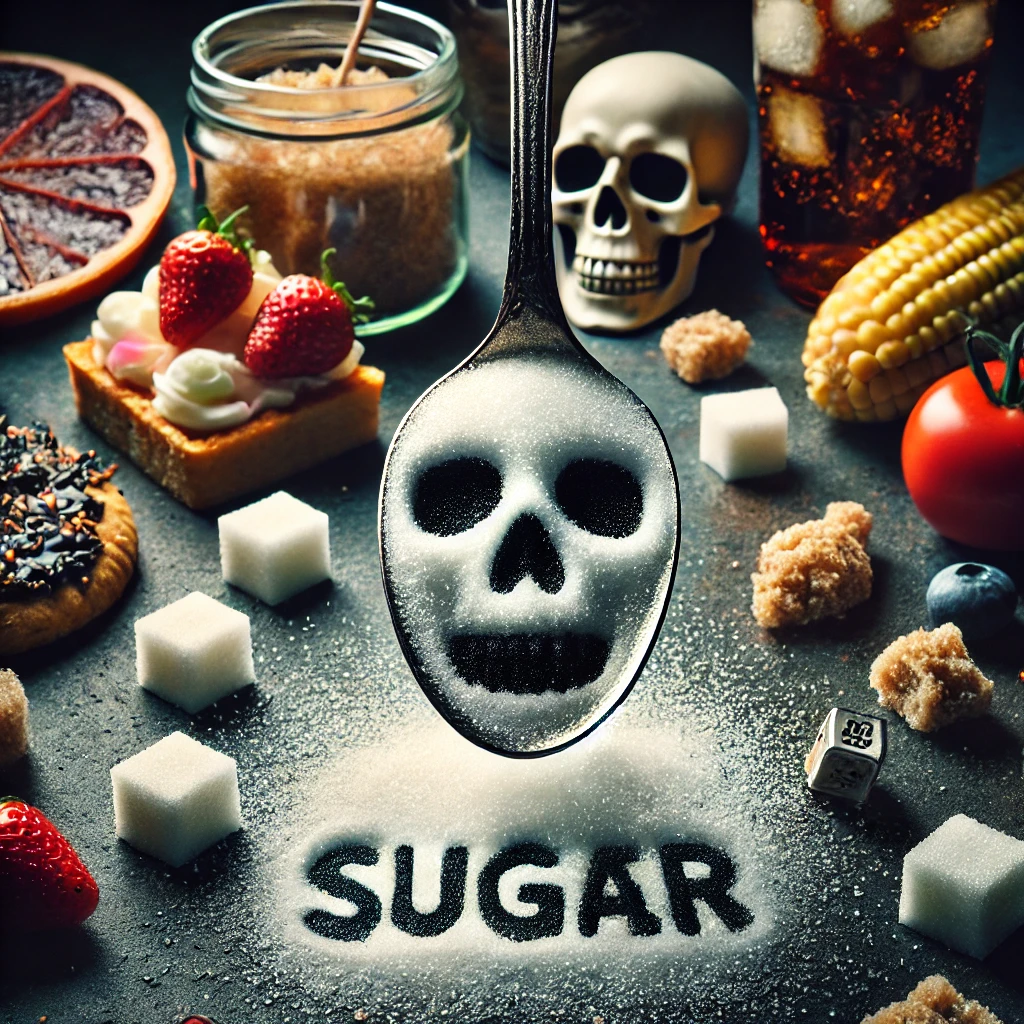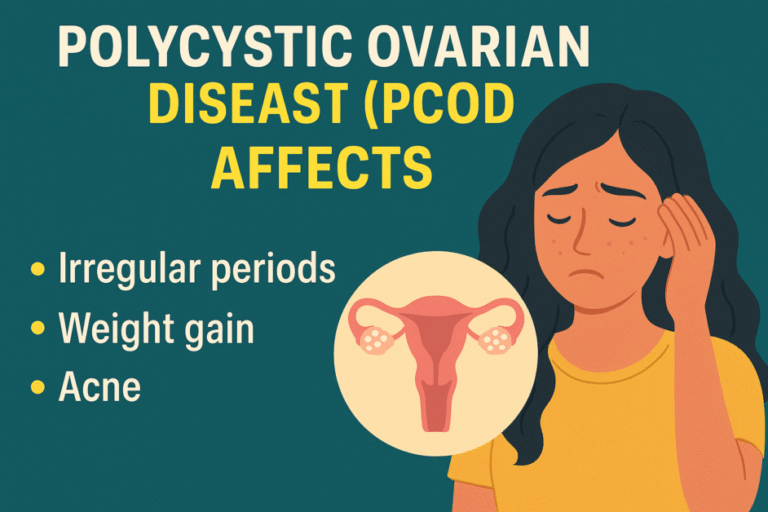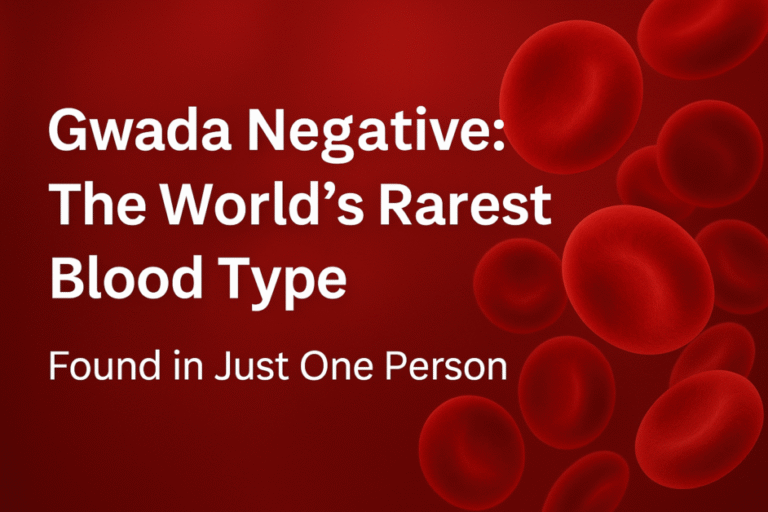Why Sugar is Called a Slow Poison for Your Health?
Introduction
Sugar is an inseparable part of modern diets, present in everything from soft drinks to processed foods. While it adds sweetness to life, excessive sugar consumption is increasingly being linked to severe health issues. Many experts refer to sugar as a “slow poison” because of its harmful effects on metabolism, organs, and overall well-being. But why exactly is sugar so dangerous? Let’s explore the scientific reasons behind this alarming claim.
1. The Hidden Dangers of Sugar
Sugar is not just empty calories—it actively damages the body in multiple ways. Consuming too much sugar leads to:
• Weight gain and obesity
• Increased risk of type 2 diabetes
• Heart disease and high blood pressure
• Liver damage and fatty liver disease
• Addiction-like cravings and mood swings
2. How Sugar Affects Your Body Like a Poison
2.1. Disrupts Blood Sugar Levels
When you eat sugar, it quickly spikes your blood glucose levels. This forces your pancreas to release insulin, a hormone responsible for lowering blood sugar. Over time, frequent spikes can lead to insulin resistance, a precursor to diabetes.
2.2. Contributes to Obesity
Sugar, especially in the form of high-fructose corn syrup, leads to fat accumulation in the liver and belly. It also interferes with hunger hormones, causing overeating and weight gain.
2.3. Increases the Risk of Heart Disease
Excess sugar raises bad cholesterol (LDL) while lowering good cholesterol (HDL), increasing the risk of heart disease, stroke, and high blood pressure.
2.4. Weakens the Immune System
Studies show that excessive sugar consumption suppresses the immune system, making the body more vulnerable to infections and illnesses.
2.5. Damages the Liver
Sugar overloads the liver, leading to non-alcoholic fatty liver disease (NAFLD), a condition similar to liver damage caused by excessive alcohol consumption.
3. Why Sugar is as Addictive as Drugs
Sugar stimulates dopamine release in the brain, just like drugs such as cocaine. This creates an addiction cycle, leading to cravings and withdrawal symptoms when sugar intake is reduced.
4. Sugar and Mental Health: The Unseen Connection
Research suggests that high sugar intake contributes to anxiety, depression, and cognitive decline. It also increases the risk of Alzheimer’s disease due to inflammation and oxidative stress.
5. How to Reduce Sugar Intake for a Healthier Life
5.1. Identify Hidden Sugars
Sugar hides in many foods under different names, such as:
• High-fructose corn syrup
• Dextrose
• Maltose
• Evaporated cane juice
5.2. Choose Natural Sweeteners
Replace refined sugar with:
• Honey (in moderation)
• Stevia
• Monk fruit sweetener
5.3. Read Labels Carefully
Processed foods often contain added sugars. Always check ingredient lists before buying packaged foods.
5.4. Drink More Water
Sugary beverages like sodas and fruit juices are major culprits of sugar overload. Switching to water can significantly reduce your sugar intake.
5.5. Eat Whole Foods
The Clean Eating Diet Plan Guide
Fruits, vegetables, nuts, and lean proteins are excellent choices to maintain stable blood sugar levels and prevent sugar cravings.
6. FAQs About Sugar and Health
Q1: Is all sugar bad for health?
Not all sugar is harmful. Natural sugars found in fruits and vegetables come with fiber and essential nutrients. The real danger lies in added sugars found in processed foods.
Q2: How much sugar is safe to consume daily?
The American Heart Association recommends no more than 6 teaspoons (25 grams) of added sugar per day for women and 9 teaspoons (36 grams) for men.
Q3: Can sugar cause cancer?
Although sugar itself doesn’t directly cause cancer, excessive sugar intake promotes obesity and inflammation, which are risk factors for cancer.
Q4: Does quitting sugar improve health?
Yes! Reducing or eliminating sugar can improve energy levels, mental clarity, digestion, skin health, and overall well-being.
Q5: What are the best sugar alternatives?
Natural alternatives like honey, maple syrup, and stevia are better than refined sugar. However, they should still be consumed in moderation.
Q6: How long does it take to break sugar addiction?
It varies from person to person, but most people experience withdrawal symptoms for about a week before their cravings decrease.
Conclusion
Sugar may taste delightful, but its long-term effects on health make it a dangerous substance. Understanding why sugar is called a slow poison empowers you to make healthier choices. By reducing sugar intake, choosing natural alternatives, and focusing on a balanced diet, you can protect your body from the hidden dangers of excessive sugar consumption.
——————————————————————
7-Day Sugar Free Diet Plan
——————————————————————-
Intermittent Fasting and Exercise: A Guide to Maximizing Fat Loss and Muscle Gain
——————————————————————
More Updates-
——————————————————————
BUY SUPPLEMENTS-
GNC 100% Whey Protein – Buy Now
Extra Discount- ANUJPRATAP0005
—————————————————————-




